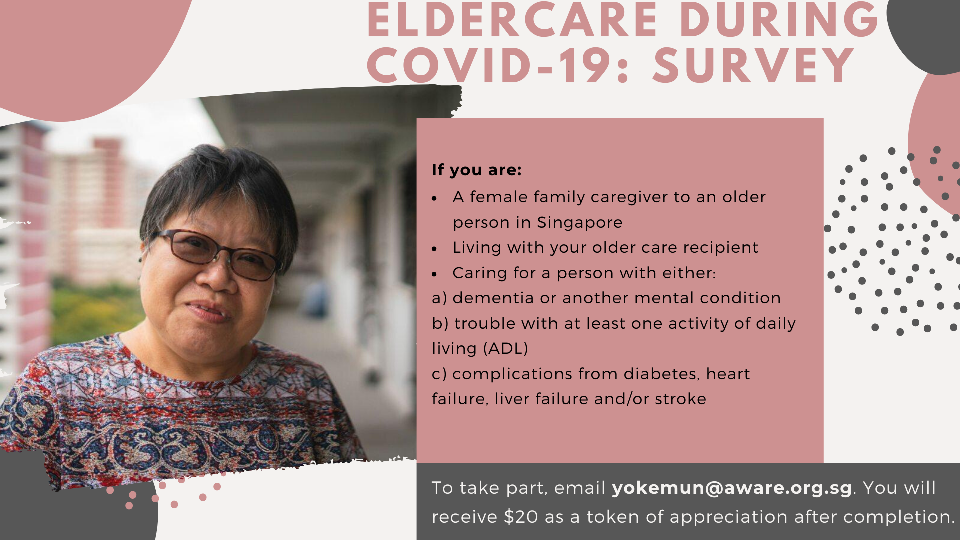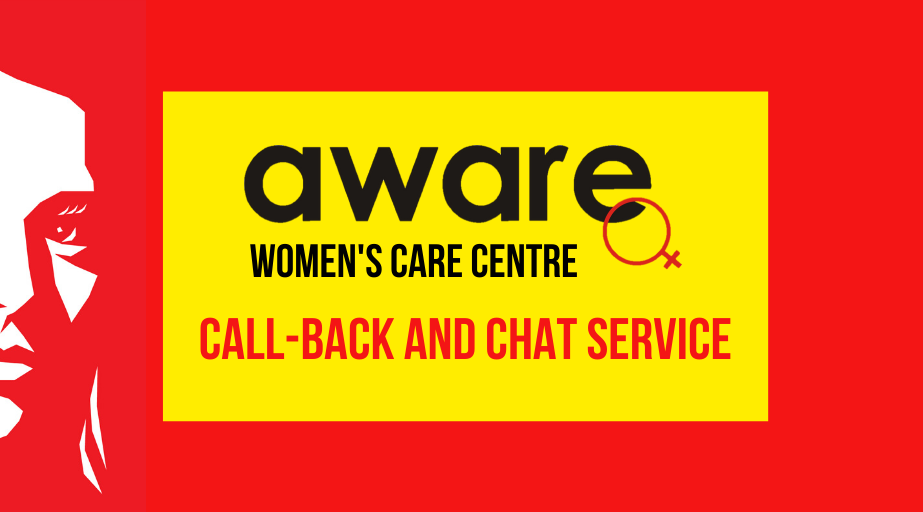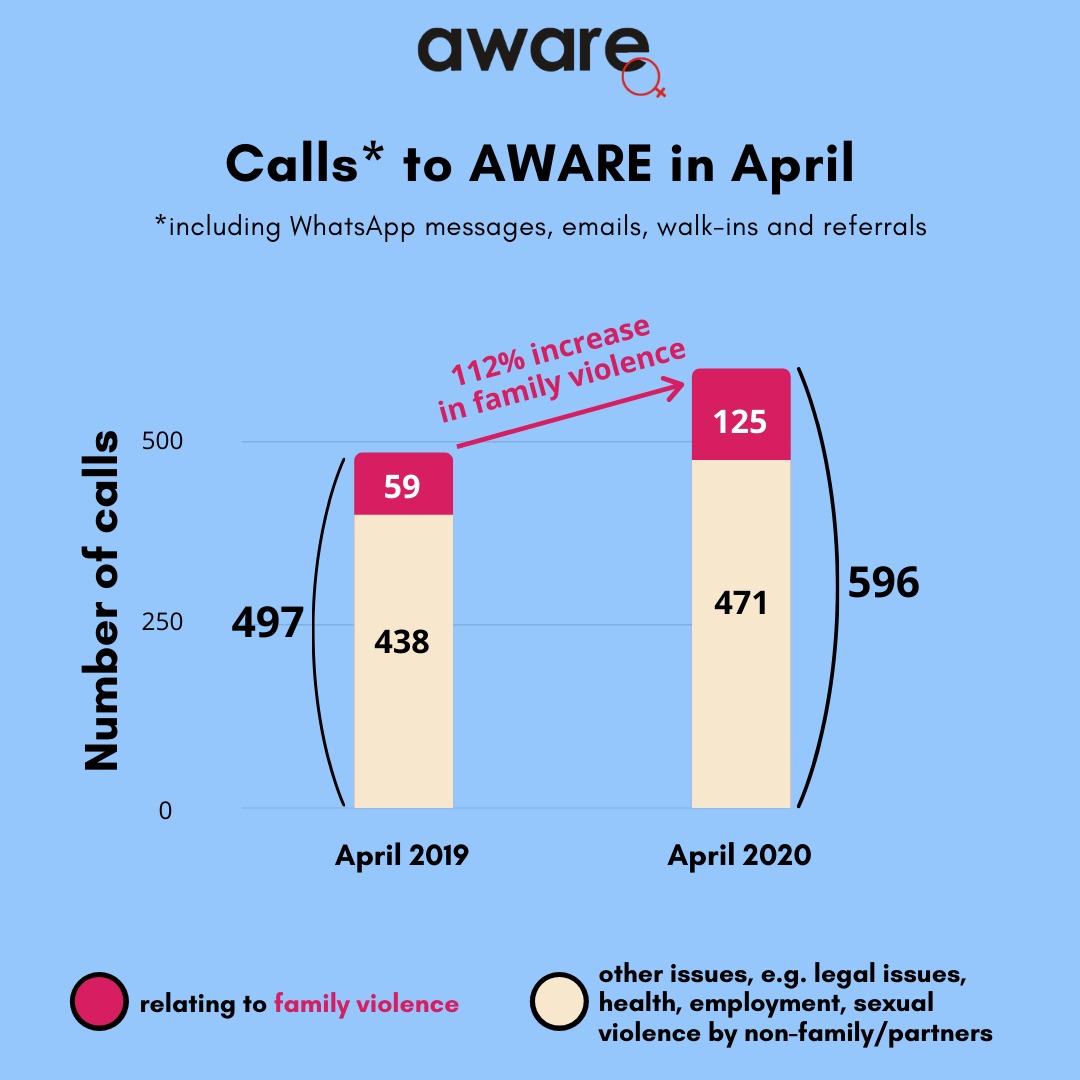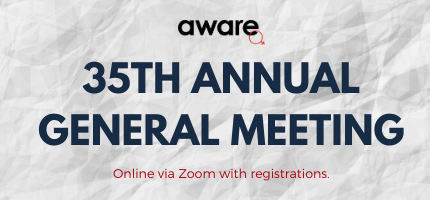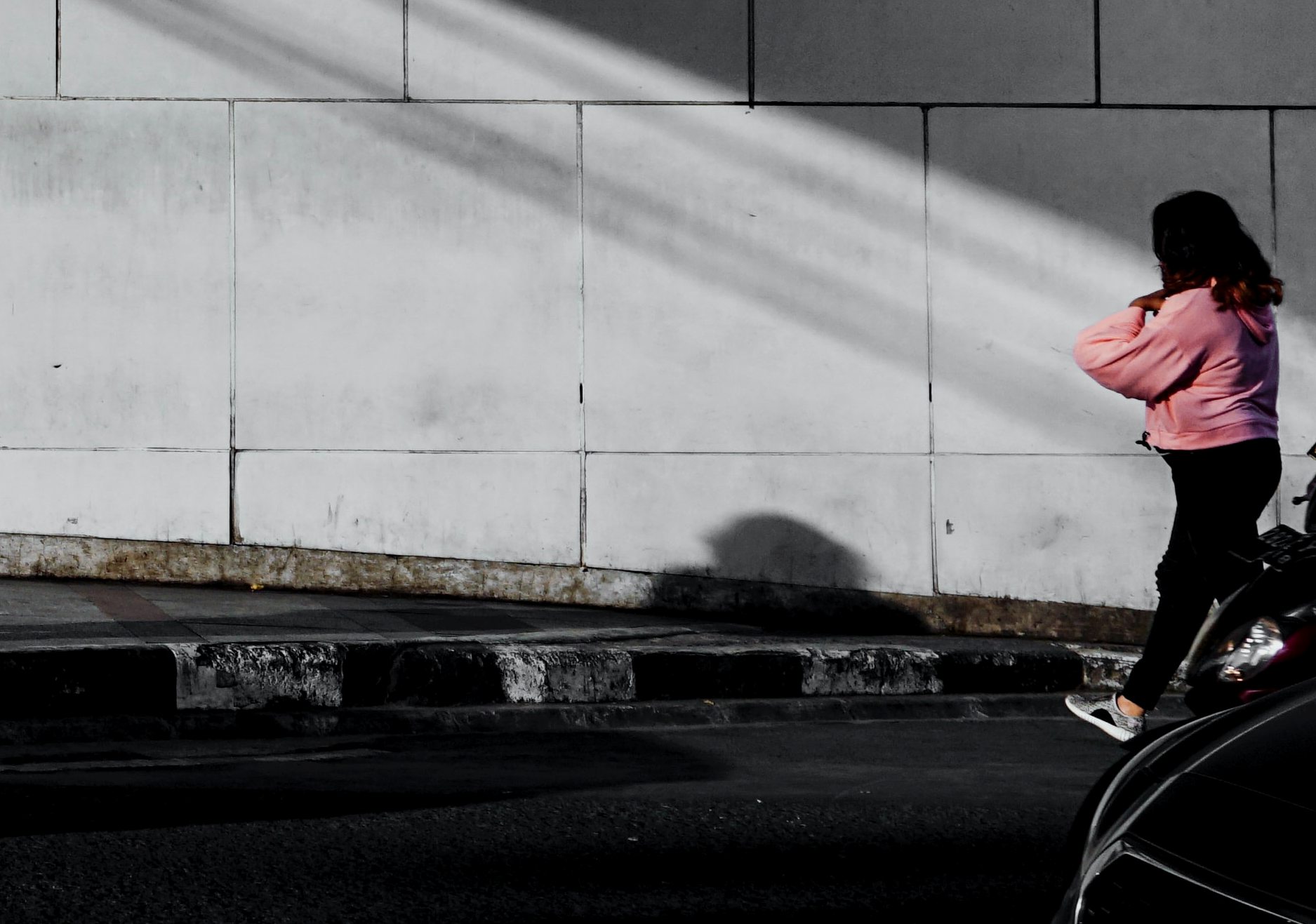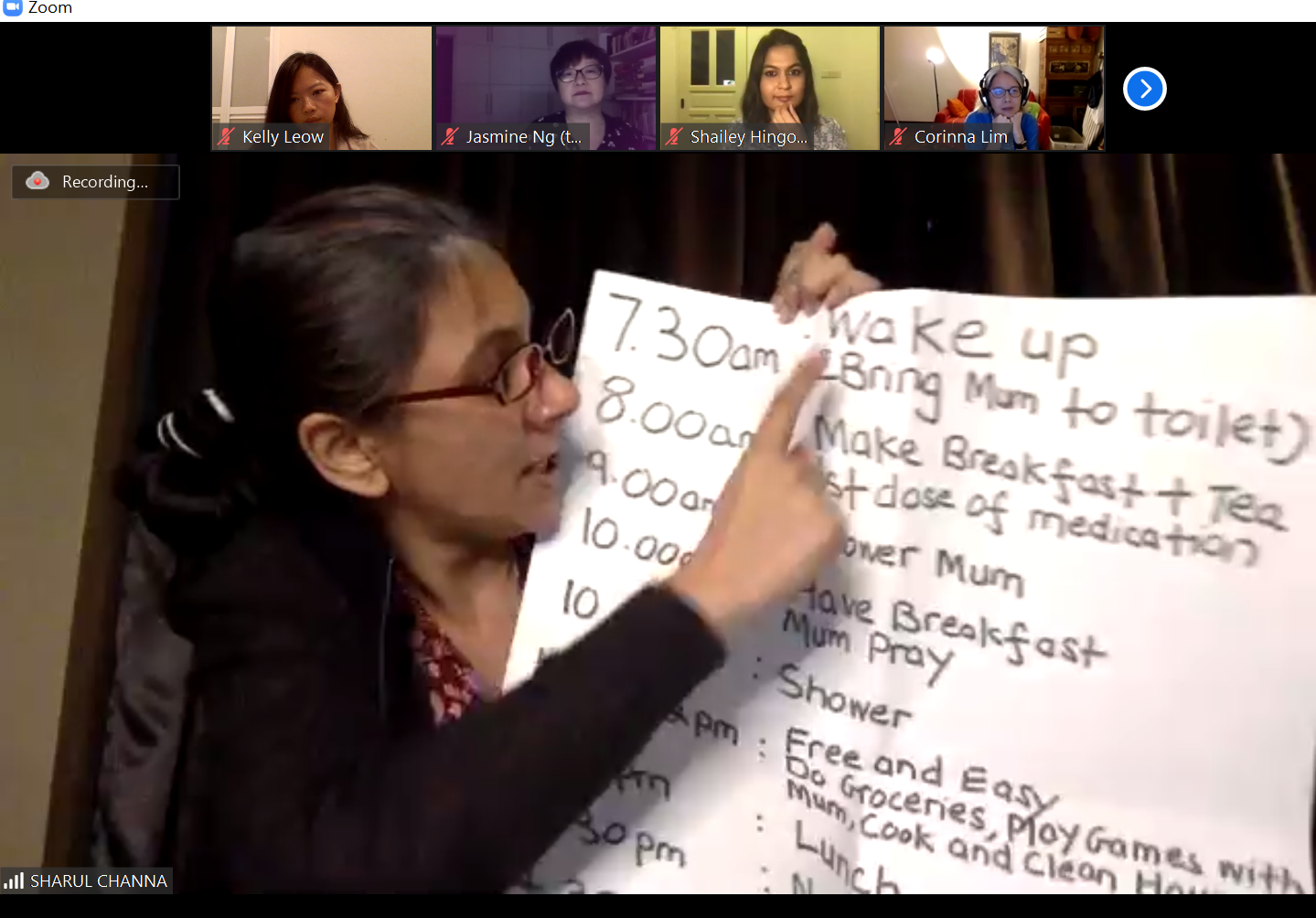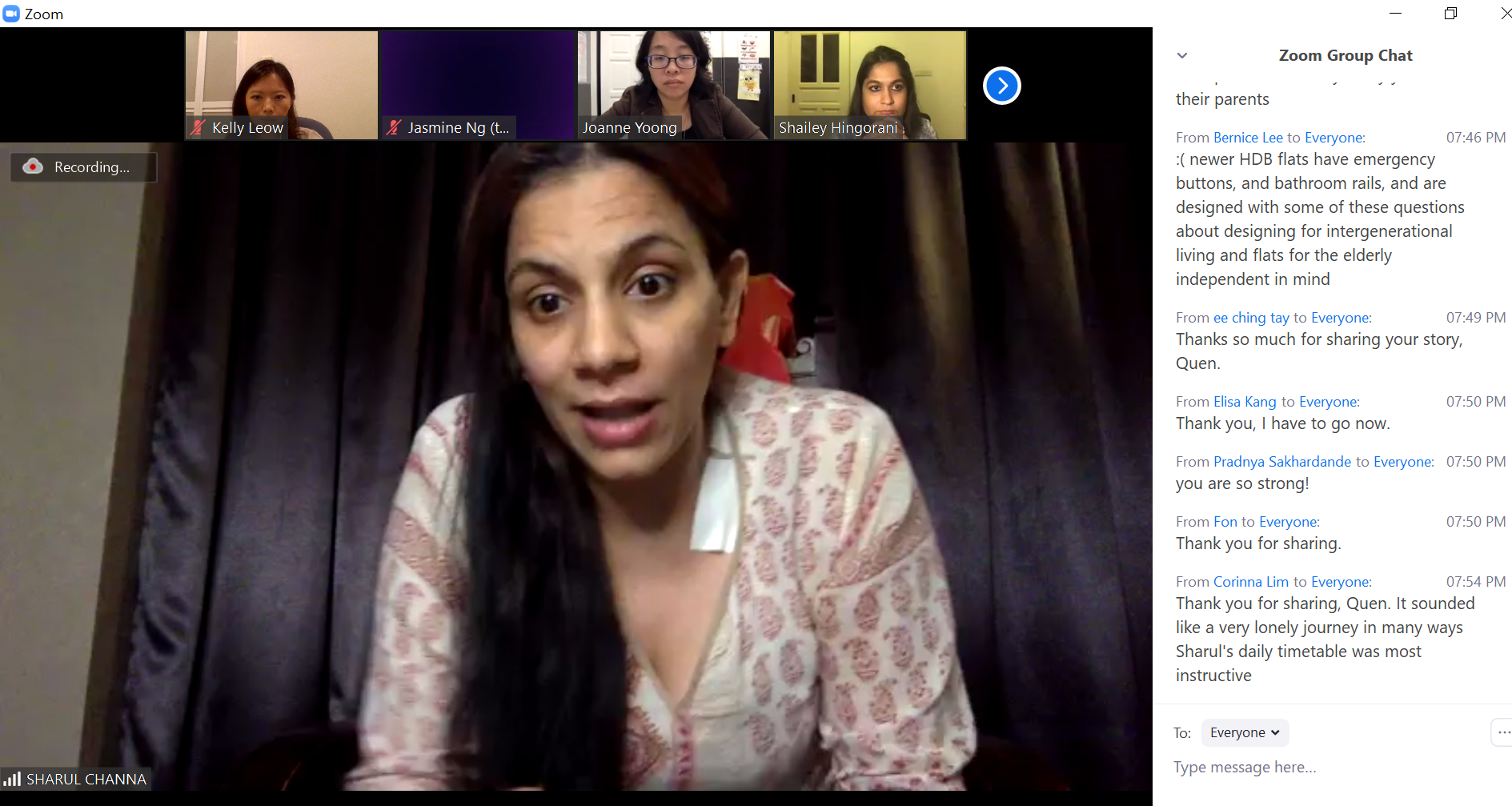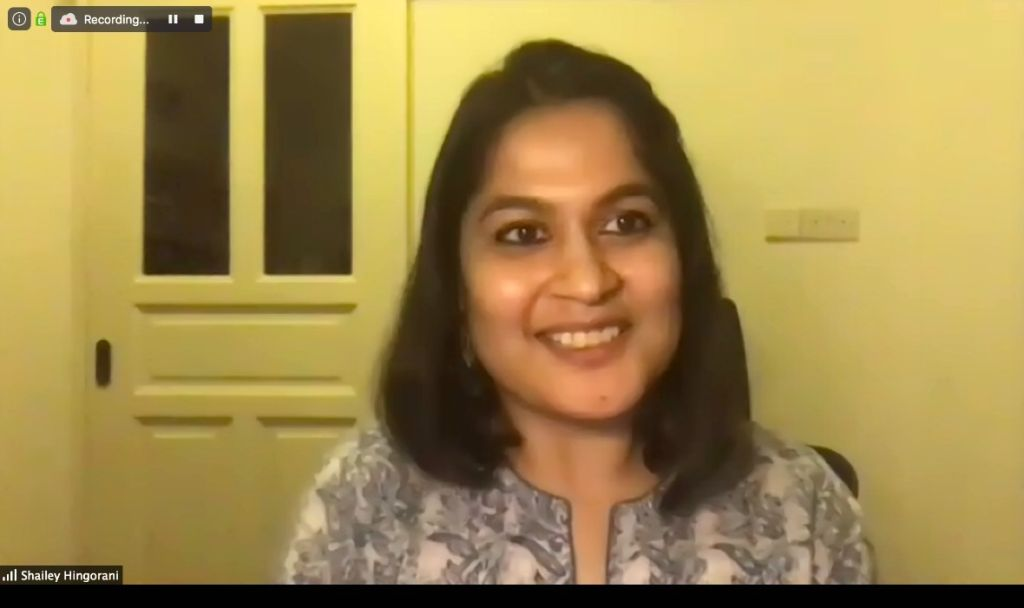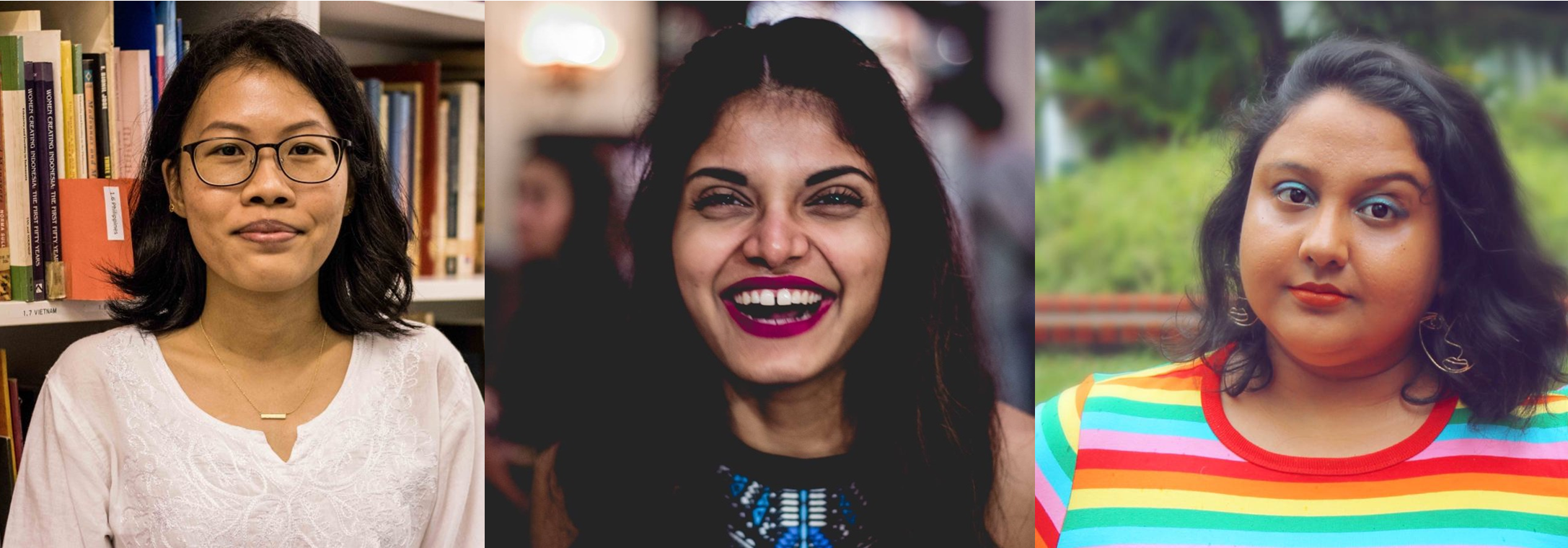
Written by Nur Atiqah Mohamad and Tanya Ragupathi
On the evening of 9 April 2020, AWARE hosted “Not Just Snowflakes”, an open conversation with three young activists: Filzah Sumartono (Projects Manager at AWARE and co-editor of the Perempuan series of books), Reetaza “Reetz” Chatterjee (founder of Your Head Lah!, a mental health collective in Singapore) and Aarti Olivia Dubey (a former psychotherapist turned activist).
Moderated by AWARE Senior Research Executive Chong Ning Qian, “Not Just Snowflakes” was held as an online panel via Zoom, and saw more than 60 attendees. Live-captioning was also made available to ensure the panel was inclusive and accessible.
To kick off the evening, each of our panellists shared what “activism” meant to them. As the founder of Your Head Lah!, which strives to tackle issues of mental health and mental illness while amplifying marginalised voices, Reetz said that she finds her work to be “so much more than just the doing, but also a way of being”.
Through her work in advocating for, in particular, fat body positivity, disability justice and LGBTQ rights, Aarti said that she hopes to be a guide for those around her. Her mission is to let people struggling with body image know that their struggles are valid, and create safe spaces for them.
To Filzah, activism is about actively speaking out and standing up for what you think is right and just, in spite of any fear. She actively calls for a radical and profound shift in Singaporean society, not just piecemeal change. Filzah also expressed a distaste for activism involving solutions that maybe look good and feel good, but don’t really do any good in the world. She noted that within Singapore activism, people from marginalised communities are often excluded, so it’s important to “create our own movements, our own communities”.
Aarti echoed this, highlighting how the internet and social media platforms have allowed activists to get more creative with their work. She finds that fatphobia, and people’s reluctance to examine their own biases, leads to them being hesitant to engage with the idea of diverse bodies. Many are scared of going against what they have been told about health and fitness.
Reetz drew an analogy between activism and translation: the act of translating the struggles of those on the ground into a form legible to people in power, and convincing them to listen and take action. She pointed to the “brownface” incident last year, when an e-payment advertisement used an actor of Chinese ethnicity to portray four races. To her, the incident – which spawned a thousand thinkpieces – begged the question: How many different ways do advocates need to present racist violence and systemic racism, in order to convince people in power that it exists?
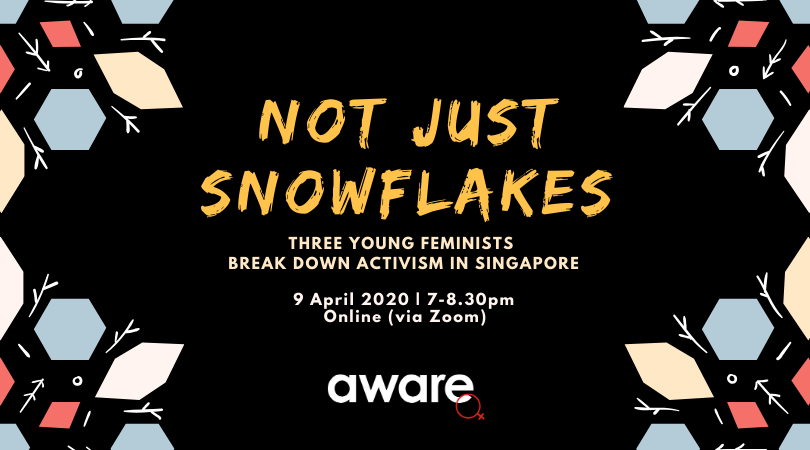
As the world is gripped by a pandemic, we are all facing challenges as we adapt to a new way of life – and that applies to activism, too! The panellists were asked about the adjustments they were making during COVID-19.
For Reetz, whose work revolves heavily around community-building, there is comfort to be found in collective healing in the absence of physical interaction. She pointed out how the pandemic has also served as a great lesson on how we can make our movements truly accessible to everyone – we can afford to unlearn a lot of internalised ableism and myths about productivity and self-worth.
As a disability activist herself, Aarti noted that she finds comfort in sharing tips on self care, and in being a listening ear for those around her. She finds that compassion fatigue is a very real issue among activists – therefore, reminding ourselves to unplug and give ourselves space can be very useful.
Filzah pointed out that while the learning curve to working remotely can be quite steep, physical distancing can become pretty intimate as well, as we bring people into our personal spaces.
Activists will always receive varying reactions from other people to their work. Filzah has experienced some pushback when she speak about female genital mutilation (FGM): People will comment that FGM is “not as severe” in Singapore as compared to other countries, implying that she should not bring it up at all, and instead focus on “more serious” issues. She has also been brushed off as “young and naïve” for talking about social justice issues.
Similarly, Aarti often finds threats in her inbox from detractors accusing her advocacy of “glorifying unhealthiness”. She has been targeted online by people who create Facebook profiles impersonating her. She has found herself fetishised and objectified, and criticised for not fitting into the stereotypical image of a married Indian woman, too.
On the different tack, Reetz admitted that she sometimes feels that she isn’t “queer enough” for queer spaces. She identified a couple of barriers to her in such spaces: one, the lingering prevalence of racism, and two, the way discourse tends to be dominated by cisgender gay men. Also, as a mentally ill person, she feels that her own story is sometimes framed as either “trauma porn” or “inspiration porn”. Being a light-skinned brown person with educational privilege also tokenises her. Lastly, she feels the pressure to present a perhaps artificially polished version of how she is coping with her own mental health (i.e. being a person in recovery), when the reality of healing is very messy.
The audience then chimed in with questions for the panellists. Topics raised ranged from inclusivity in activism and dealing with “keyboard warriors” to supporting persons with mental health conditions.
The trio’s final advice for budding activists was simple: “Do what you can with what you have.”
For many in the audience, the bravery of these three women was nothing short of inspirational. Participants thoroughly enjoyed themselves at the session that evening, and many requested a Part Two!




